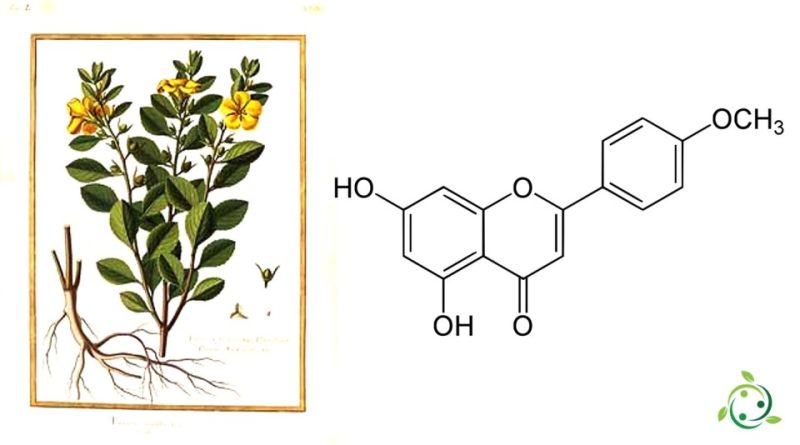Acacetin
Acacetin
Acacetin, whose term in the official IUPAC nomenclature is: 5,7-dihydroxy-4′-methoxyflavone is a flavonoid compound of natural origin.
Acacetin has the chemical formula C16H12O5.
Acacetin is a compound found in various plants, including Turnera diffusa, Robinia pseudoacacia, Betula pendula, Asplenium normal and other species.
This substance belongs to a class of natural compounds called flavones, known for their antioxidant and anti-inflammatory properties.
Acacetin shows a moderate inhibition of aromatase, a key enzyme in the biosynthesis of estrogens as it catalyzes the reaction which, starting from testosterone, operates the synthesis of estradiol.
Research suggests that acacetin may have several potential health benefits. It has been studied for its anticancer properties, as it can help inhibit the growth of some cancer cells and induce apoptosis (cell death) in cancer cells. Additionally, acacetin has shown potential as an anti-inflammatory agent, which may be beneficial for conditions characterized by inflammation.
Acacetin has also been studied for its effects on the central nervous system. Some studies have suggested that it may have neuroprotective properties and could potentially be used in the treatment of neurodegenerative diseases such as Alzheimer’s and Parkinson’s.
It is important to note that while preliminary research on acacetin is promising, more studies are needed to fully understand its potential benefits and determine safe and effective dosages. As with any supplement or natural compound, it is advisable to consult a physician before using acacetin or any related product.
Warning: The information provided is not medical advice and may not be accurate. The contents are for illustrative purposes only and do not replace medical advice.

